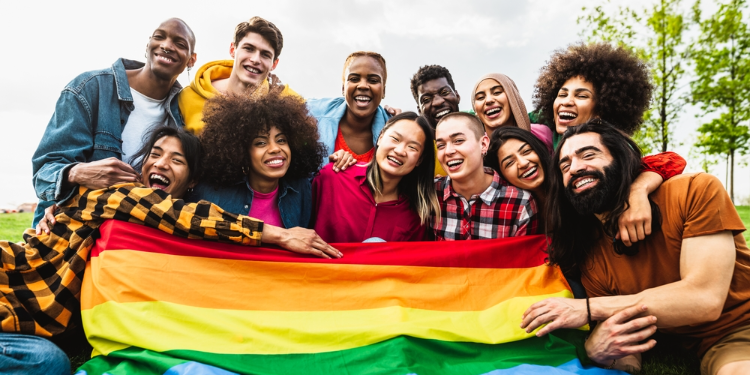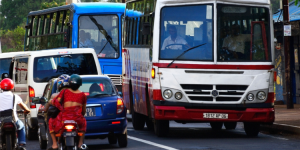
For queer expats, moving abroad means researching if a country is safe for them and will give them the same rights as heterosexual and cisgender expats. Here are some destinations which are more welcoming for LGBTQI+ expats.
Malta has been ranked the safest country worldwide for trans people
It might come as a surprise that the country with the best legal protection for transgender people is not a major economic power but the small Mediterranean island of Malta, which is a EU member state. Actually, some of the most economically powerful countries remain unsafe for trans people. In the US, for example, multiple states have been enacting transphobic laws in the past year. In the UK, the murder of a transgender teenage girl made the news in 2023.
Malta was late in legalizing abortion rights —it only decriminalized abortion, even in the case of rape or danger to the mother, in 2023. However, when it comes to LGBTQI+ rights, it is years ahead of other countries. The travel journalism platform Asher & Lyric conducted research about the safety of various destinations to create a Danger Index 2023. They ranked Malta as the fourth safest country for LGBTQI+ travelers and expats in general and the first worldwide in terms of safety for transgender travelers and expats.
Transgender people are particularly vulnerable to violence and homicide. The Trans Murder Monitoring of the Austria-based NGO Transgender Europe reported that, only in 2023, there have been 320 registered transphobic murders worldwide. Unregistered murders should make the actual number higher. Most happened in the Americas, especially in Brazil, Mexico, the US and Colombia. As for Malta, the murder rate of trans people on the island is officially zero.
What are the legal protections for queer people in Malta? Same-sex couples are allowed to get married and adopt children jointly. Both sexual orientation and gender identity are protected in cases of employment and housing discrimination. Donating blood and enlisting in the military are allowed for everyone. Conversion therapy is illegal. Not only are male-to-female and female-to-male trans identities protected by the law, but non-binary is also fully recognized as gender identity, as reported by the LGBTQI+ knowledge base Equaldex. From the age of 16, teenagers can apply for hormone therapy and a gender change on their ID without requiring parental consent.
On the Expat.com forum, some expats in Malta say that even with such strong legal protection, some discrimination does exist on the ground, unfortunately. Some trans expats have experienced some level of discrimination in Maltese bars and restaurants, for instance, or have been misgendered in everyday conversations.
Canada is considered the safest country to immigrate to as a queer expat
In Asher & Lyric's Danger Index, Canada ranks first worldwide when it comes to the safety of LGBTQI+ travelers and expats. Unfortunately, the transphobic homicide rate is not zero, but it remains extremely low.
LGBTQI+ rights are protected in various Canadian visa and immigration schemes. The federal immigration authority, Immigration, Refugees and Citizenship Canada (IRCC), fully allows gay, lesbian, bisexual, transgender and non-binary expats to apply for family sponsorship and economic immigration visas. As reported by CIC News, the same-sex spouse or partner of a Canadian resident/citizen can start working on an open work visa while their own residence status is still being processed. The IRCC also provides funding to the Rainbow Refugee Society, which works to sponsor queer people in other countries who are being persecuted for their sexual orientation/gender identity and bring them to Canada.
Same-sex couples are not only allowed to adopt children in Canada but they are also allowed to have children via surrogacy, provided that this surrogacy is unpaid or altruistic (to prevent the exploitation of women).
Gender-affirming surgery is rarely greenlighted for children under the age of 16, but for adults, it's fairly easy to access this form of healthcare. Hormone therapy, including for children, can be prescribed by GPs, for it is no longer considered a specialist area of healthcare. Most Canadian provinces will financially sponsor the cost of gender reassignment surgery. Unfortunately, the more conservative province of Alberta might soon restrict gender-affirming healthcare, but this is being opposed by the federal Minister of Health and might not pass.
Canada has many historic LGBTQI+ areas in its cities, such as Toronto's Gay Village (on Church and Wellesley Streets) and Queer West Village, Montreal's Gay Village, Vancouver's Davie Village, and Ottawa's Bank Street Gay Village. The country's major cities provide a very rich social and cultural life for queer expats.
Sweden has a long-standing reputation for being a safe country for LGBTQI+ people
In Asher & Lyrics's Danger Index, Sweden ranks as the second least dangerous country for queer travelers and expats. It has often topped that list in the past.
Sweden has been a leader in creating progressive laws and conditions for the LGBTQI+ community. Sexual relationships between people of the same gender were decriminalized as far back as the 1940s. In 1972, Sweden became the first country worldwide to allow transgender people to legally change their gender identity, and discrimination based on sexual orientation has been illegal since the 1980s.
One of the most recent legal advances is very important for expats. In 2013, a reform to the Legal Gender Reformation Act allowed expats who are not Swedish citizens to change their gender in the population register.
The law against discrimination based on sexual orientation and gender identity even explicitly protects toddlers and small children, not just teenagers and adults, in the Act Prohibiting Discriminatory and other Degrading Treatment of Children and Pupils. This makes Sweden especially safe for expat families with trans children. On the Expat.com forum, a prospective American expat with a transgender teenager expressed his interest in moving to Sweden precisely because it would be a safer environment for his child. Right now, he is based in a Republican state with transphobic laws in the US.
South Africa can be a safe haven for LGBTQI+ expats in Africa
In Asher & Lyric's Danger Index, the African country with the highest safety rating is South Africa. It ranks as the 16th safest destination, which is higher than Germany, Australia and New Zealand.
LGBTQI+ citizens and expats have very strong legal protection in South Africa, but unfortunately, they can remain at risk because of other intersecting issues. As the sociologist Zethu Matebeni says in the article “Being queer in Africa: the state of LGBTQI+ rights across the continent,” published in The Conversation, intersecting issues like economic inequality, racial discrimination, and violent crime still put LGBTQI+ people in danger. Expats living in more privileged parts of the country might remain fairly safe from these dangers.
On paper, the laws are very strong. In the mid-1990s, South Africa became the first country in the world to add the illegality of discrimination based on sexual orientation to the Constitution. However, gender identity does not have the same constitutional protection. Transgender people have the right to change their legal name and undergo transition.
For expats, South Africa is the only country of the African continent where their same-sex partner can get a dependent visa. This has been possible as early as 2002 through Section 13 of the Immigration Act. Even if the reality on the ground for queer people in South Africa can be unsafe under certain conditions, it can often be the only country that queer expats from other Sub-Saharan African countries can afford to relocate to. So, it still offers an important regional safe haven.



















